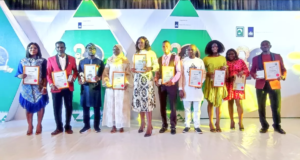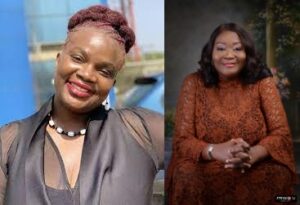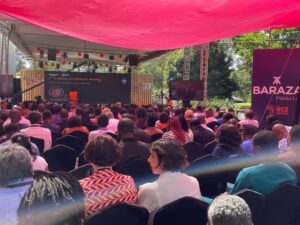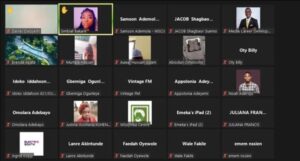Lecturers drawn from local and foreign universities, journalists, among others, on Wednesday evening in Lagos rose from a two-day conference listing values the media must embrace to perform its role as watchdog creditably.
The conference, which featured paper presentations and reviews by discussants, had the theme “Watchdogs or Captured Media? A Study of the Role of the Media in Nigeria’s Emergent Democracy, 1999-2016’’.
Objectivity, investigative reporting and training are essential
Dr Nathaniel Danjibo, of the Institute of Peace and Strategic Studies, University of Ibadan, said that objectivity, investigative reporting and training are essential in making journalists perform better.
Danjibo, who delivered a paper on media reportage of religious and ethnic conflicts, said that such values are especially vital in handling reports on such issues.
According to him, the media, in handling such reports, should also be sensitive and refrain from headlines that can escalate conflicts through sensationalism.
He said that objectivity, accuracy, respect for privacy and respect for national interest, would help the media to make more impact in its reportage of such issues.
Danjibo said that investigative reporting would help the media to understand deeper issues underlying some crises, with a view to enriching its reportage.
Media that is dependent cannot be objective
Mr Lanre Idowu, a Trustee of the Diamond Awards for Media Excellence and Project Coordinator of the Workshop, said media that is dependent cannot be objective and the performance of its watchdog role would be hampered.
He said there was a need to take the issue of management in the media more seriously and for them to fund their operations better.
Idowu said that journalists should also be paid better, grounded and more exposed to training, to check corruption in the profession and earn more credibility.He said that infractions of the journalism code should be punished through naming and shaming, while reward schemes should be put in place to encourage hard work.
Idowu said the two-day conference was designed to appraise how well the media as an institution had fared since the advent of the 4th Republic in 1999.
He said the gathering is the third step in a five-tiered programme designed to improve media performance.
According to him, the exercise will culminate in the publication of the book on the topic before the end of the year.
Make optimal use of the Freedom of Information Act
Mr Edetan Ojo, Executive Director, Media Rights Agenda, urged the media to make optimal use of the Freedom of Information Act to enrich their reportage and hold government accountable.
He said that statistics showed that the media had not been taking enough advantage of the Act and urged journalists to change the trend as watchdogs.
Unethical practices also erode public confidence in the media
Earlier, a Professor of Journalism, University of Northern Iowa, USA, Christian Ogbondah, on Tuesday spoke on “State-Media Relations: Obstacles to Media Freedom, 1999-2017’’.
He said that the Nigerian media faced external and internal threats to its watchdog role in the period.
Ogbondah listed the external threats to include arbitrary arrests and detention of journalists, media closure, threats, physical assault of journalists and loopholes in the Freedom of Information Act.
Others cited are the existence of antiquated and anachronistic laws like the Official Secrets Act, strategic criminal libel and sedition suits to intimidate the press and financial challenges faced by the media.
Internally, he said unethical practices also erode public confidence in the media.
The media must be able to question the authorities
Prof. Lai Oso, former Dean, School of Communication, Lagos State University, and Dr Yinka Esan, Senior Lecturer, Department of Communictions, University of Winchester, England, also delivered papers on the media and democracy.
A Ghanaian professor, Kwame Karikari, gave an insight into the Ghanaian experience at the conference.
Karikari, former Director, School of Communication, University of Ghana, Legon, said no radio station or newspaper has been closed down by the government in his country since 2001.
He explained that the media in his country, particularly since 2001, has operated free of encumbrances.
The professor said that though there had been some attacks by some errant policemen on some journalists performing their duties, they had been met with protests.
He said that the media must be able to question the authorities, especially when they go out of line, in performing their watchdog role.
Karikari said that though state-owned media exist in Ghana, the government has no control over what they air, as an independent regulatory body is in charge of appointing their management.
According to him, no matter what the media does in a democracy, if they do not play the watchdog role, they will become irrelevant.
He said the Ghanaian media was largely free, but the question was whether they were performing their roles optimally.
Karikari said the challenge faced by the media in Ghana was in the area of ownership where few broadcast outlets were growing into monopolies, with large ownership by the political elite.
He said that such large ownership by the political elite and big businesses constrains the watchdog role of the media.
The professor said that though the Ghanaian media had done well in exposing cases of corruption and improper behavior, a lot more could still be done.
Constitutional democracy makes it easier to check the excesses of the government.
A Professor of Communication, Mafikeng Campus, North-Western University, South Africa, Abiodun Salawu, also gave an overview of the South-African experience.
He said that the South-African media has, by and large, played an extraordinary role in holding the government accountable.
According to him, South Africa operates a constitutional democracy, which makes it easier to check the excesses of the government.
Media’s respect for impartiality would go a long way
The Managing Director/Editor-in-Chief of Punch Newspapers, Mr Ademola Osinubi, said the media should constantly expose wrongdoings in a democracy.
He said the media’s respect for impartiality would go a long way in determining how well it is regarded.
Osinubi, who was represented by Mr Segun Adediran, Chairman, Editorial Board, Punch Newspapers, urged the gathering to help in adding value to the practice of journalism in the country.
“Watchdog or Captured Media?’’
Prof. Ayo Olutokun, a co-convener of the conference, said it was organised to examine, critique and refine various chapter contributions to the proposed book, “Watchdog or Captured Media? A Study of the Role of the Media in Nigeria’s Emergent Democracy 1999-2016’’.
Sponsored by the Ford Foundation, the book in preparation seeks to document, as well as interrogate the role, record, constraints and changing profile of the media between 1999 and 2016, Olutokun said.
He said in order to ensure quality, scholars in the mass communication who have already established themselves and some professionals were commissioned to do chapters for the proposed book.
“Comparative contributions from three African countries, namely, Ghana, Kenya and South Africa were also assigned, so that low-level generalizations about the African media can emerge,“ the professor said.
According to him, the title, “Watchdog or Captured Media?’’ was deliberately chosen.
He said this was done in order to enter a perspective on the raging debate as to whether the media, which played a heroic role in the anti-military struggles had lost their bite.
The professor said it was to see whether the media had become stenographers of the establishment, social diarists documenting the glittering lives of the privileged or Man Fridays of those in power.
Media is a monumental force in a democracy
Mr Paul Nwulu, Program Officer, Ford Foundation’s Office for West Africa, said the media is a monumental force in a democracy, holding the government accountable to the people.
“The media is that voice of and representative of the people and without a truly independent and vibrant press in a nation, the people are the ones that are shortchanged.
“It is our hope that this compilation of essays on the role of the media in Nigeria’s emerging democracy will highlight the important role that the media has played and continued to play and will create a basis for the continued appreciation of the media and its critical importance in our society.
“The Ford Foundation has always been very interested in supporting communication research,’’ he added. (NAN)





